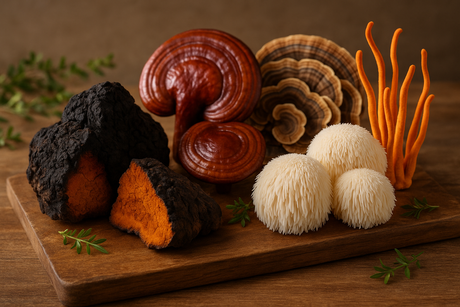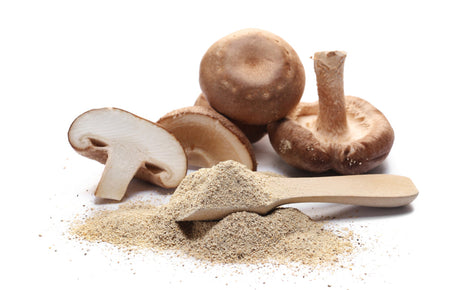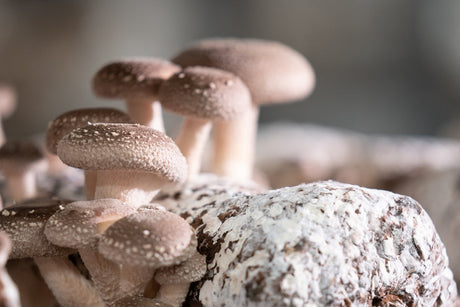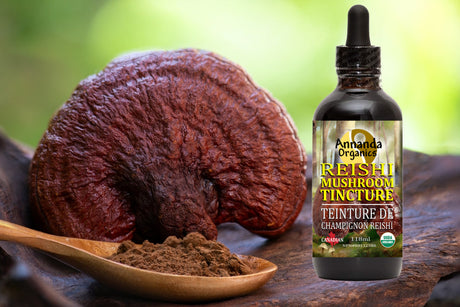When it comes to fighting cancer, nature has provided us with a powerful ally: the chaga mushroom. This remarkable fungus, scientifically known as Inonotus obliquus, has been used for centuries in traditional medicine for its potential health benefits. Recent scientific studies have shown that chaga mushroom contains compounds that can effectively kill cancer cells, offering hope for those seeking alternative treatments. In this blog post, we will explore the fascinating properties of chaga mushroom and its potential as a natural weapon against cancer.
What makes chaga mushroom special?
Chaga mushroom is a parasitic fungus that primarily grows on birch trees in cold climates. It has a unique appearance, resembling a black, burnt mass on the tree bark. Despite its unappealing appearance, chaga mushroom is a treasure trove of bioactive compounds that contribute to its potential health benefits.
How does chaga mushroom kill cancer cells?
One of the key compounds found in chaga mushroom is superoxide dismutase (SOD). SOD is an enzyme that plays a crucial role in neutralizing harmful free radicals in the body. Free radicals are highly reactive molecules that can damage cells and DNA, leading to various diseases, including cancer.

What is Superoxide Dismutase?
Superoxide dismutase is an enzyme that catalyzes the dismutation of superoxide radicals into oxygen and hydrogen peroxide. This process helps to neutralize these harmful radicals and protect cells from oxidative stress.
It plays a crucial role in the body's antioxidant defense system. It is responsible for breaking down superoxide radicals, which are highly reactive molecules that can cause damage to cells and contribute to aging and various diseases.
How Does Superoxide Dismutase Work?
Superoxide dismutase works by speeding up the conversion of superoxide radicals into less harmful molecules. This helps to prevent oxidative damage to proteins, lipids, and DNA, which can lead to various health issues.
Benefits of Superoxide Dismutase
Research has shown that superoxide dismutase has numerous health benefits, including reducing inflammation, protecting against cardiovascular disease, and slowing down the aging process. It is also being studied for its potential role in cancer prevention.
Studies have shown that increasing the levels of superoxide dismutase in the body can help to improve overall health and well-being. This can be done through dietary sources, such as fruits and vegetables, or through supplementation.
Scientific evidence supporting chaga mushroom's anti-cancer properties
Studies have shown that chaga mushroom extract can induce apoptosis, a process of programmed cell death, in cancer cells. This means that chaga mushroom can effectively target and eliminate cancer cells while leaving healthy cells unharmed. Furthermore, chaga mushroom has been found to inhibit the growth of tumors and prevent the spread of cancer cells, making it a promising candidate for cancer treatment.
Several scientific studies have investigated the potential anti-cancer properties of chaga mushroom. In a study published in the Journal of Ethnopharmacology, researchers found that chaga mushroom extract inhibited the growth of human lung cancer cells by 50%.
Another study published in the International Journal of Medicinal Mushrooms demonstrated that chaga mushroom extract suppressed the growth of colon cancer cells by inducing apoptosis. The researchers concluded that chaga mushroom could be a valuable natural source for developing anti-cancer drugs.
How to incorporate chaga mushroom into your routine
If you're interested in harnessing the potential health benefits of chaga mushroom, there are several ways to incorporate it into your routine. Chaga mushroom is commonly consumed as an extract, tea or in the form of a powder. It's important to note that while chaga mushroom shows promise as a complementary treatment for cancer, it should not replace conventional medical treatments.
Conclusion
Chaga mushroom is a fascinating natural remedy that has shown promising results in fighting cancer cells. Its unique composition, including the presence of superoxide dismutase, makes it a potential weapon against cancer. While further research is needed to fully understand its mechanisms and potential side effects, chaga mushroom offers hope for those seeking alternative treatments. As always, it's important to consult with a healthcare professional before incorporating any new supplements or treatments into your routine.













